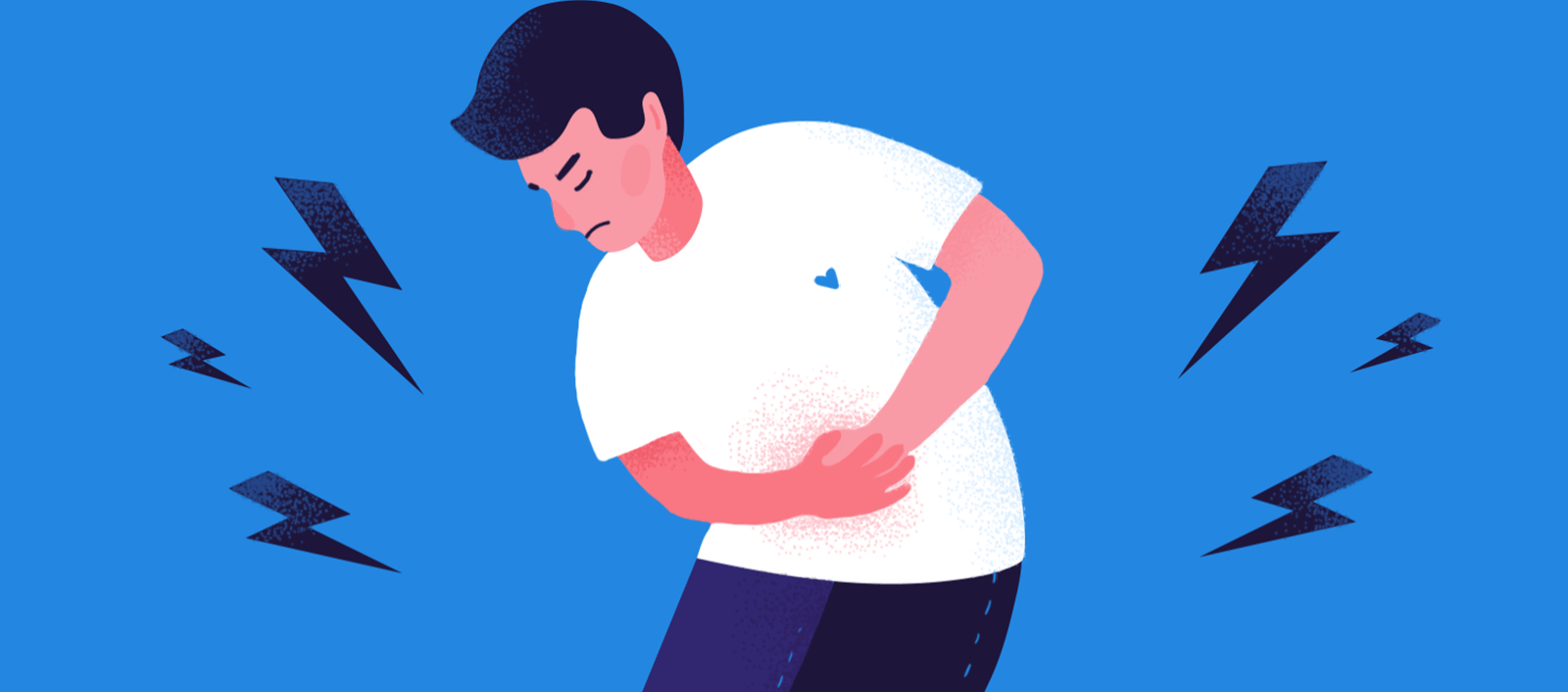Upset Stomach
OVERVIEW | CAUSES | Care and Treatment | Home remedies | when to call a doctor | REFERENCES

OVERVIEW
An upset stomach, often related with indigestion or abdominal pain, is a general term used to describe discomfort or pain felt in the upper abdomen.
CAUSES
Here are some different causes for an upset stomach-
Stress
It’s a common feeling when you have a big event or presentation coming up—you start to feel nauseous or like your stomach is full of butterflies.
Whether you’re stressed, nervous or even overexcited, any emotion can cause a physical response. These changes can impact every major system, including your digestive system.
Stress not only heightens your emotions but your physical body functions as well. Stress can send your digestive system into overdrive, which can cause a stomachache or nausea. An upset stomach due to stress isn’t typically a cause for concern and will go away on its own.
Food poisoning
It is always important to keep track of what you eat, especially when dining out for a meal. Symptoms of food poisoning can often kick in within hours of eating contaminated food. These often include nausea, vomiting, diarrhea and abdominal pain.
Indigestion
Indigestion is also very common and can stem from certain lifestyle habits or eating choices. If you eat certain foods, eat too fast, smoke, drink alcohol or are often fatigued, you may experience indigestion.
Irritable bowel syndrome
If you experience stomach pains on a regular basis, you may have irritable bowel syndrome (IBS). IBS is a common condition and can cause symptoms like cramping, bloating, gas and constipation.
IBS is a chronic condition that needs management long term. Managing certain things in your life such as diet and stress can help keep your symptoms under control.
Gastroparesis
Nausea, heartburn, vomiting or feeling full fast are symptoms of a rare but serious condition called gastroparesis. The exact cause of gastroparesis is often unknown but can sometimes be caused by uncontrolled type 1 and 2 diabetes, narcotics or antidepressants, multiple sclerosis or an injury to a major nerve called the vagus nerve. When you have gastroparesis, the muscles in your stomach slow or stop emptying food properly into the intestine.
Although Gastroparesis is a chronic condition, it’s important to get a proper diagnosis so you and your doctor can help manage it- especially if you suffer from diabetes too.
Care and Treatment
Most cases of upset stomach clear on their own within a couple of days without treatment. If you've tried lifestyle changes and home remedies for an upset stomach without success, your doctor might recommend the following:
Antibiotics
Antibiotics might help treat your condition caused by bacteria or parasites. If a virus is causing your stomach to be upset, antibiotics won't help. Alternatively, if your doctor determines that antibiotics are what’s causing your condition, they will likely lower the dose or switch to another medication.
Electrolytes
While water is an effective method to replace fluids, it doesn't contain the salts and electrolytes that are essential for your body to function. Drinking liquids that have these essential minerals like sodium and potassium can increase your speed of recovery if you are losing too much fluid.
Treatment to Replace Fluids
Your doctor will likely recommend a steady regimen to ensure you are replacing the fluids and salts your body has lost. This usually means drinking plenty of water, juices, and broth. If drinking liquids upsets your stomach or causes vomiting, your doctor might recommend getting IV fluids.
Treating underlying conditions
Your upset stomach might be caused by a more serious condition, such as inflammatory bowel disease. If your doctor determines this to be the case, you might be referred to a specialist, such as a gastroenterologist, who can help devise a treatment plan for you.
Home Remedies
Most stomach ailments can be treated at home. As soon as you start feeling sick, begin limiting your diet to clear liquids in frequent, small amounts. Make sure to drink enough fluids to keep your urine clear or a pale yellow.
If you’re not able to keep liquids down and begin to vomit, start with sips of water or sucking on ice chips. Once you are able to keep that down, try other fluids like:
- Clear soup broth or bouillon
- Decaffeinated tea
- Sports drinks
- Clear soft-drinks
- Juices like apple, grape, cherry, or cranberry (make sure to avoid citrus juices)
- Popsicles
Once you are able to keep all liquids down, try some solid foods along with the liquids. Good foods to try are:
- Applesauce
- Bananas
- Soda crackers
- White rice
- White toast
It may take several days to one week to regain your appetite, energy level, and for your bowels to regain normalcy.
When to call a doctor
An upset stomach is usually nothing to worry about. Consult your doctor if the symptoms don’t go away after two days or if they begin to get worse in that time. Additionally, consult your doctor if you experience any of the following:
- You feel dehydrated, including feeling excessive thirst, dry mouth, little or no urination, severe weakness, dizziness, or lightheadedness
- You have severe abdominal or rectal pain
- You have bloody or black stools
- You have a fever of more than 102 degrees Fahrenheit






































































































